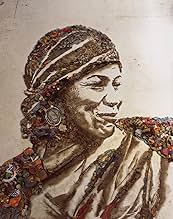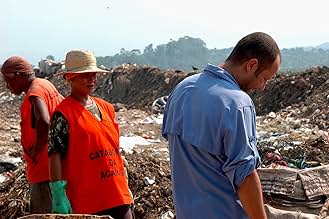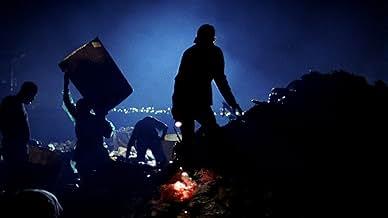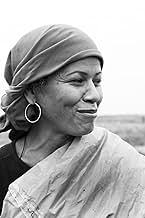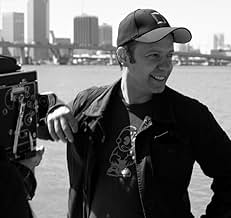On the outskirts of Rio de Janeiro is Jardim Gramacho, the world's largest landfill, where men and women sift through garbage for a living. Artist Vik Muniz produces portraits of the workers... Read allOn the outskirts of Rio de Janeiro is Jardim Gramacho, the world's largest landfill, where men and women sift through garbage for a living. Artist Vik Muniz produces portraits of the workers and learns about their lives.On the outskirts of Rio de Janeiro is Jardim Gramacho, the world's largest landfill, where men and women sift through garbage for a living. Artist Vik Muniz produces portraits of the workers and learns about their lives.
- Directors
- Star
- Nominated for 1 Oscar
- 29 wins & 13 nominations total
Storyline
Did you know
- TriviaThe Gramacho landfill was in fact deactivated in 2012. It is now a green area once again, wherein its native life has returned. However, many of the pickers forced into retirement were left without jobs and in poor quality of life.
- Quotes
Valter: [talking about the importance of recycling] People sometimes say "But one single can?" One single can is of great importance. Because 99 is not 100, and that single one will make the difference.
- ConnectionsFeatured in The 83rd Annual Academy Awards (2011)
The catadores, who number in the thousands, work under burning hot sun and overpowering odors collecting and selling recyclable materials such as bottles, plastic, and metal to wholesalers and middlemen who turn them into such resalable items as buckets or bumpers for automobiles. Vic Muniz' plan is to select and paint a group of six catadores to pose as photographic subjects that will mimic such classic paintings as "The Death of Marat" by Jacques-Louis David. Money from sales of the resulting art will go to the pickers association for the benefit of the workers. The project included Tiao, the leader of ACAMJG (Association of Collectors of the Metropolitan Landfill of Jardim Gramacho) who went on a hunger strike to dramatize the conditions of the pickers and built an organization that helped create a skills-training center and a medical clinic for the workers.
There was also Zumbi, a member of the association, who began a library from his home from books that had been discarded, Irma, a cook who makes stews and roasts from edible meat to feed the workers, Suelem, an 18-year old girl who has been working in the garbage dump since she was only seven years old, and Valter, an elderly man who entertains with stories and songs and who decides to participate because he believes that "it will raise awareness of all us pickers." Once the initial photographs are made, Muniz projects an enlarged version of each photo onto the floor of his studio and hires the pickers to add refuse from the landfill onto the canvas, photographing the result from overhead. This then becomes the finished art work, ready to be exhibited at auctions and museums around the world with the pickers traveling to such cities as London and New York, the first time they have ever left Gramacho.
Waste Land is not only a biography of an artist, but a look at the artist in the context of the community in which his art is created. Muniz reveals the courage and resilience of the people in spite of their grinding poverty and depressing environment. Many are former middle class residents of the suburbs who chose the life of the picker rather than becoming prostitutes or drug dealers and are happy with their choice. Though Muniz's goal was, "to be able to change the lives of a group of people with the same material that they deal with every day," he never dreamed that his work would impact the lives of the people so dramatically.
Through his efforts, many of the residents who worked for him have changed their life and either reconciled with their families or gone on to more rewarding jobs. Modernization has also begun to take shape at Gramacho. A recycling plant has been built and the workers have been separated into categories for more efficient organization. Though admittedly just a beginning, Muniz has demonstrated that the power of art is available to all people regardless of their circumstances, allowing them to experience their inner beauty and believe in themselves in a new way. Not succumbing to the temptations of melodramatic excess, Waste Land has been shortlisted for an Oscar for Best Documentary and fully deserves to be among the finalists.
- howard.schumann
- Dec 3, 2010
- Permalink
- How long is Waste Land?Powered by Alexa
Details
- Release date
- Countries of origin
- Official sites
- Languages
- Also known as
- Wasteland
- Filming locations
- Jardim Gramacho, Rio de Janeiro, Brazil(landfill)
- Production companies
- See more company credits at IMDbPro
Box office
- Budget
- $1,500,000 (estimated)
- Gross US & Canada
- $187,716
- Opening weekend US & Canada
- $9,806
- Oct 31, 2010
- Gross worldwide
- $291,307
- Runtime1 hour 39 minutes
- Color
- Sound mix
- Aspect ratio
- 1.85 : 1
Contribute to this page




